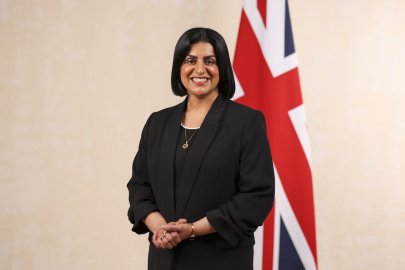UK Government Seeks Reform of Human Rights Convention for Migration
The UK government is actively advocating for reforms to the European Human Rights Convention (EHRC) as part of its broader strategy to manage migration effectively. This call for reform reflects ongoing concerns about immigration policies and the ways in which human rights laws impact the ability of governments to control their borders. As nations grapple with increasing migration pressures, the conversation around the intersection of human rights and immigration has become increasingly urgent.
Understanding the Context of Migration and Human Rights
Migration is a complex issue that affects various countries, including the UK. The government’s push for reform is rooted in several concerns, including:
This reform initiative comes amidst ongoing discussions about how to balance the rights of individuals, such as asylum seekers and undocumented immigrants, with the need for robust immigration control.
Implications of the Proposed Reforms
The UK government’s proposed reforms to the EHRC may have significant implications for both immigration policy and human rights protections. Some potential impacts include:
These implications highlight the delicate balancing act that governments must perform when addressing immigration issues while respecting the foundational principles of human rights.
Current Trends in Immigration Reform
The conversation surrounding immigration reform is not limited to the UK. Many countries are grappling with similar challenges. For instance, the United States is also experiencing significant debates over immigration laws and practices. Recent developments include:
In these contexts, it becomes evident that immigration reform is a pressing issue that requires comprehensive solutions that respect human rights while addressing national security concerns.
Conclusion: The Path Forward for Immigration Reform
As the UK government seeks to reform the European Human Rights Convention to better manage migration, it is essential to consider the broader implications of such changes. The challenge will be to develop policies that not only secure borders but also uphold the rights and dignity of all individuals.
The discussion surrounding immigration reform is likely to continue evolving, with various stakeholders involved, including governmental bodies, human rights organizations, and the general public. It is critical to engage in a balanced dialogue that addresses both the need for effective immigration control and the imperative to safeguard human rights.
The future of immigration policy in the UK and beyond will depend on the ability of governments to navigate these complex issues thoughtfully and responsibly.










